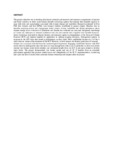Please use this identifier to cite or link to this item:
https://cris.library.msu.ac.zw//handle/11408/1340Full metadata record
| DC Field | Value | Language |
|---|---|---|
| dc.contributor.author | Mugabe, Francis T. | - |
| dc.contributor.author | Munodawafa, Adelaide | - |
| dc.contributor.author | Dimes, J. | - |
| dc.contributor.author | Nanja, D.H. | - |
| dc.contributor.author | Carberry, P. | - |
| dc.contributor.author | Mwale, M. | - |
| dc.contributor.author | Mubaya, C. | - |
| dc.contributor.author | Makuvaro, Veronica | - |
| dc.contributor.author | Chagonda, Ignatius | - |
| dc.contributor.author | Masere, Tirivashe P. | - |
| dc.contributor.author | Mutswangwa, E. | - |
| dc.contributor.author | Murewi, C. | - |
| dc.date.accessioned | 2016-05-17T08:28:57Z | - |
| dc.date.available | 2016-05-17T08:28:57Z | - |
| dc.date.issued | 2010 | - |
| dc.identifier.uri | http://hdl.handle.net/11408/1340 | - |
| dc.description.abstract | The project objective was to develop educational curricula and research and extension competencies of present and future scientists to better assist farmers identify technology options that enhance their adaptive capacity to cope with risks and opportunities associated with climate change and variability. Research conducted by five PhD itwo women) and four MPhils (one woman) students contributed to project outputs. Baselme data to describe cropping system and management tinder current climate variability and farmer perceptions about climate change across 4 districts of Zimbabwe and Zambia was collected and analysed. Indigenous knowledge of climate and indicators to seasonal conditions were also documented and compared with scientific forecasts. Seven workshops were held to educate farmers and extension agents on interpretation of the Seasonal Climate Forecast (SCF) and explore together its application in making cropping decisions. Management options in response to the SCF were then tested in participatory on-farm trials. Most smallholder farmers (at 3 of the 4 sites) were not aware of the existence of the SCF. However, in both seasons the farmers' prediction of seasonal climate was consistent with that from the meteorological department. Engaging smallholder farmers with SCF assists them in making investment decisions on crop management options and in particular. on-fann trial results showed that fanners could derive reliable and substantial benefit from the SCF us decisions related to fertility input levels. The project demonstrated that fainter uptake and use of SC F benefits from an extended participatory approach that provides timely access and interpretation of the SC F. experimentation, monitoring and a post mortem of results which enhances farmer ownerslup and adoption after the project. | en_US |
| dc.publisher | IDRC | en_US |
| dc.relation.ispartofseries | Climate Change and Adaptation in Africa (CCAA);IDRC Project Number: 104144 | - |
| dc.subject | Climate change | en_US |
| dc.subject | Capacity Building | en_US |
| dc.title | Building adaptive capacity to cope with increasing vulnerability due to climate change | en_US |
| dc.type | Technical Report | en_US |
| item.openairetype | Technical Report | - |
| item.grantfulltext | open | - |
| item.fulltext | With Fulltext | - |
| item.openairecristype | http://purl.org/coar/resource_type/c_18cf | - |
| item.cerifentitytype | Publications | - |
| Appears in Collections: | Research Papers | |
Files in This Item:
| File | Description | Size | Format | |
|---|---|---|---|---|
| Climate Change.pdf | Abstract | 264.3 kB | Adobe PDF |  View/Open |
Page view(s)
204
checked on Jan 15, 2026
Download(s)
44
checked on Jan 15, 2026
Google ScholarTM
Check
Items in MSUIR are protected by copyright, with all rights reserved, unless otherwise indicated.



